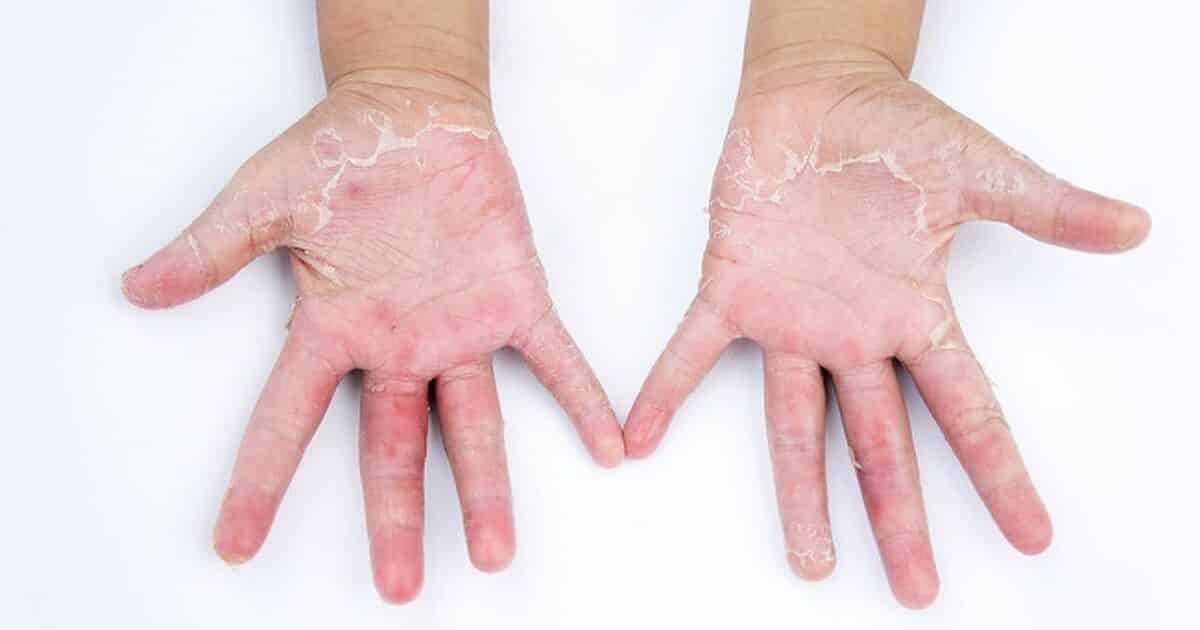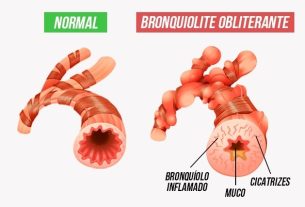Hand allergies arise when hands come into contact with a specific product, thus causing skin irritation.
Hand allergy, also known as eczema, is a disease that, in most cases, appears when the hands come into contact with a specific product, thus causing skin irritation. Additionally, other symptoms such as redness and itching may also occur.
Symptoms tend to manifest immediately, however, there are cases where the allergy only occurs on the skin 12 or 24 hours after contact with an offending agent.
Among the most common offending agents are cleaning products, but other ways to acquire the allergy are through henna tattoos, wearing jewelry such as rings and bracelets, or through direct contact with paints.
Furthermore, before we explain more about the treatments, causes and symptoms, remember that, if the allergy happens to you, seek immediate consultation with a dermatologist.
Causes of hand allergies

Hand allergies are caused by a series of factors, such as genetic predisposition and contact with strong cleaning products that remove skin protection, leading to dehydration.
Furthermore, these products make the skin drier and more unprotected, facilitating the proliferation of microorganisms and aggravating allergies.
Other causes of allergies are wearing jewelry on your hands, exposure to the sun or getting a henna tattoo.
Who can develop this type of allergy?
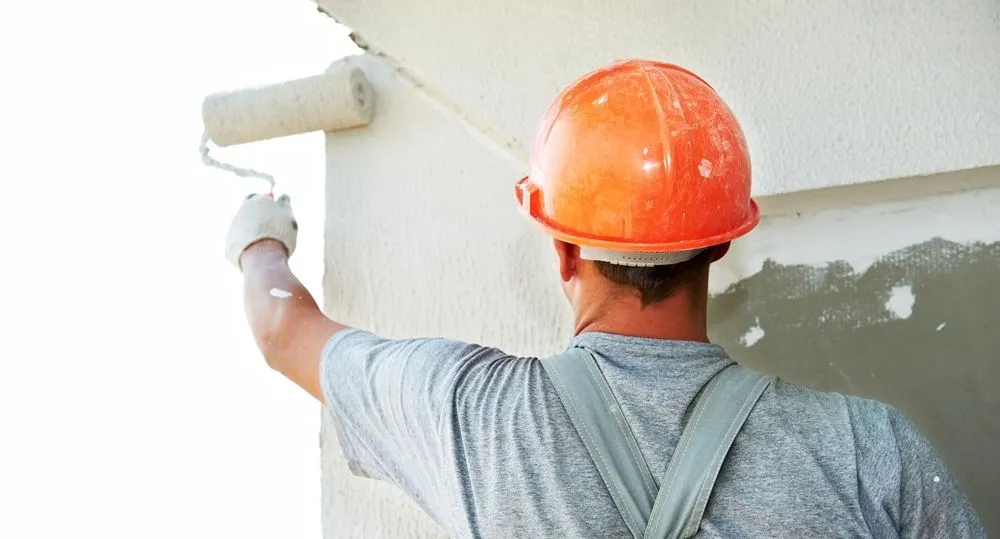
People who are most at risk of developing eczema are those who have frequent contact with strong chemicals, such as hairdressers, painters, healthcare professionals and cleaning employees. However, anyone can develop hand allergies throughout their lives.
Symptoms
Symptoms can occur in a specific part of the hands or entire hands. Among the most common are: itching, redness, inflammation, swelling and peeling of the skin.
In less severe cases, the hands are just a little dry and slightly peeling, but in severe cases, these symptoms become more intense. Furthermore, in more advanced allergies, the fingertips may become deformed.
Treatments
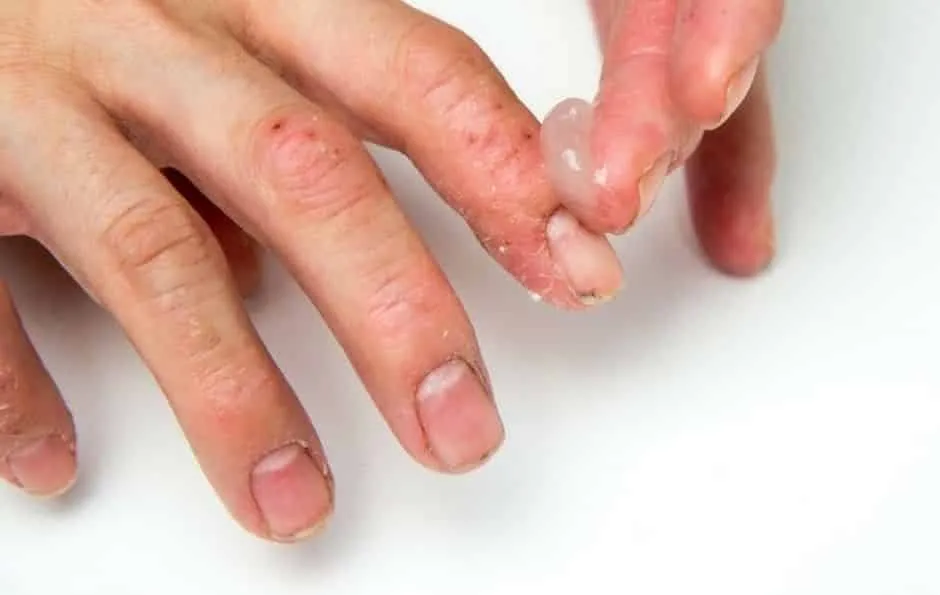
Hand allergy treatments should be recommended by a dermatologist. But, you may be following the following tips:
- Use rubber gloves when coming into contact with cleaning products;
- Avoid washing your hands with very strong soap;
- Keep your hands hydrated with soothing creams and oils;
- If there is irritation, use allergy ointments or anti-inflammatory creams.
Types of hand allergies
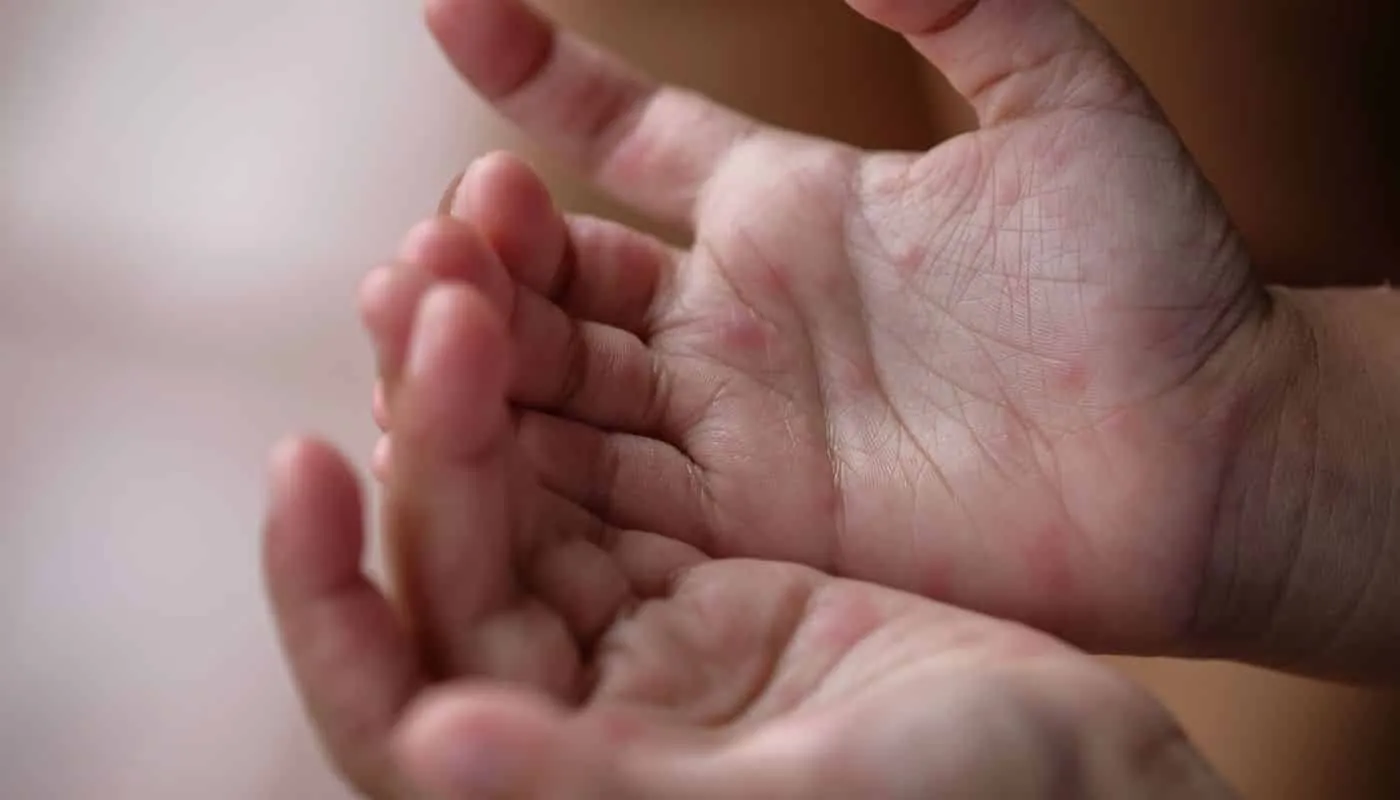
1. Contact dermatitis
This type of dermatitis is an inflammatory response in the skin that occurs due to exposure to external products foreign to the body.
Thus, contact dermatitis represents 80% of all cases, where the symptom occurs upon first contact with the offending agent. Furthermore, it is important to emphasize that this type occurs mainly due to contact with detergents, soaps, acids, greases and solvents.
2. Allergic contact dermatitis
Representing 20% of cases, allergic contact dermatitis only presents symptoms after the second contact with the offending agent.
Examples of products that cause this type of allergy are: cosmetics, metals, rubber additives, latex, resin and topical medications.
Allergy test
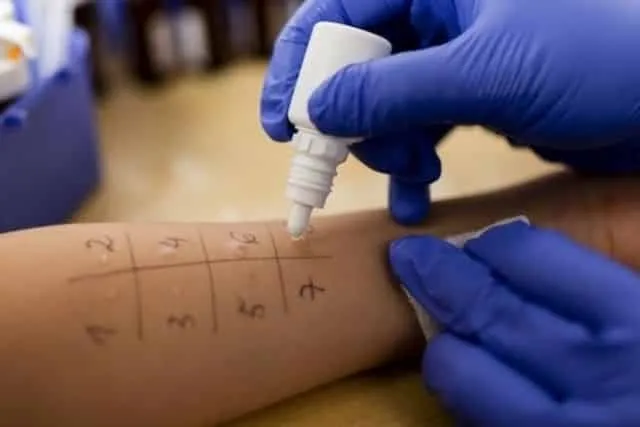
It is extremely necessary to find the agent causing the allergy through allergy tests. They consist of placing specific substances in contact with the skin and, if the patient has a reaction, it is possible to identify what should be avoided.
When the contact test is negative, the substance involved is most likely a primary irritant; when it is positive, it indicates allergic contact dermatitis.
Anyway, what did you think of this article? In fact, take the opportunity to also check out: Inflamed pimple – Types, treatment and tips on how to prevent it.
Sources: Now MT, Your health.
Image sources: Your health, Your dermatologist, ABC, Vix, Your health 2.

Sign up for our newsletter and stay up to date with exclusive news
that can transform your routine!
Warning: Undefined array key "title" in /home/storelat/public_html/wp-content/plugins/link-whisper-premium/templates/frontend/related-posts.php on line 12
Warning: Undefined array key "title_tag" in /home/storelat/public_html/wp-content/plugins/link-whisper-premium/templates/frontend/related-posts.php on line 13

